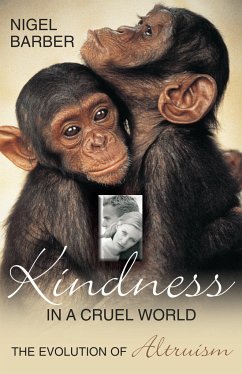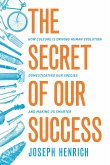What do mutual grooming, politeness, priestly celibacy, military heroism, car insurance, and overwork have in common? All are probable examples of the recently discovered evolutionary mechanism called "reciprocal altruism." Put simply, the concept means, "You scratch my back and I'll scratch yours." Although rare in animals, reciprocal altruism colors much of human emotion and social behavior. Over the course of our evolutionary history we humans have developed a great variety of social contracts ranging from food-sharing among hunter-gatherers to observing the rules of the road in contemporary society. In a lively, fascinating discussion that explores the behaviors of bees, bats, and humans in various normal and deviant social settings evolutionary psychologist Nigel Barber explains the evolutionary basis of these wide-ranging phenomena. Beginning with Darwin's theory, Barber shows how the original notion of a dog-eat-dog world where survival of the fittest is the only rule must now be modified by the new findings on altruism. In bees, for example, the workers evolve without reproductive ability and exist only for the good of the hive and the propagation of the queen bee's genes. In addition, vampire bats will spontaneously share food through regurgitation, evidently so that the favor will be returned when food sources are scarce. In humans, reciprocal arrangements depend on trust, so moral emotions, like guilt, embarrassment, resentment, and pride, have evolved to guard against the temptation to cheat, which would destroy the basis of trust on which so much depends. The evolution of such emotions may also lead to exceptionally self-sacrificial behavior in some individuals, whether this takes the form of priestly celibacy, a soldier jumping on a hand grenade to save his buddies, or the donation of a kidney. Barber brings the revealing insights of evolutionary psychology to these examples and more, and delves into related issues including sex differences in kindness, new approaches to rehabilitating criminals, the connection of kindness to health, and the political manifestations of altruism in the environmental movement. Full of stimulating ideas expressed in lucid prose, Kindness in a Cruel World presents a compelling case that the desire to help others and the spirit of cooperation are fundamental to our human evolutionary inheritance.
Hinweis: Dieser Artikel kann nur an eine deutsche Lieferadresse ausgeliefert werden.
Hinweis: Dieser Artikel kann nur an eine deutsche Lieferadresse ausgeliefert werden.








